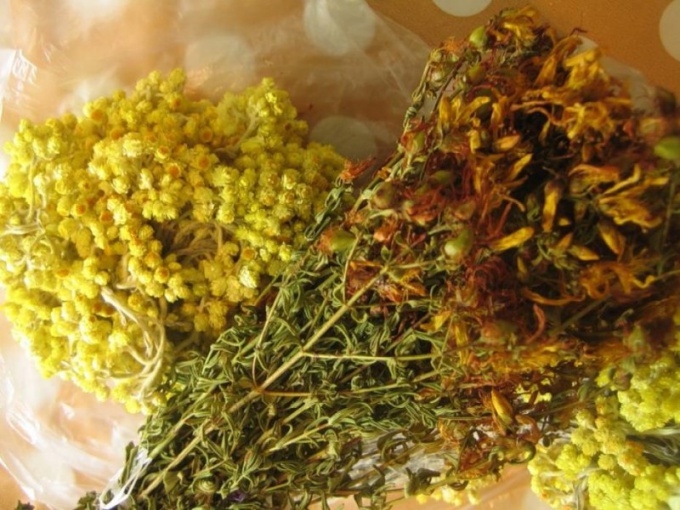Thyme
This is probably one of the leaders in the number of useful qualities. Expectorant and disinfectant properties make thyme indispensable in diseases of the upper respiratory tract (whooping cough, pneumonia, asthma, bronchitis and cough).
Thyme is a strong antibacterial agent, and therefore it is successfully used in a variety of wounds. In addition, he is popular among those people who have problems with urinary and endocrine systems, heart, stomach and intestines.
To procure this plant is not difficult. Cut thyme laid on a flat surface or hung for drying and a dark but ventilated area. And already from the dried herb, you can cook all sorts of concoctions, tinctures and teas. Besides, it can be added to the bath during bathing.
St. John's wort
The healing power of St. John's wort is due to the presence in its composition of many biologically active components. With success it is used for stomach problems (cholecystitis, gastritis, gall stone disease, ulcer), and intestinal parasites. Also, the herb St. John's wort will help with the inflammation of the genital organs in women and cracked nipples. And antibacterial, wound healing and hemostatic properties provide a good its use in case of accidental cuts. By the way, this plant is used for various diseases of the skin.
Chamomile
Collecting this plant, important not to confuse medicinal species with a common field Daisy. In order not to err in this way should remember that the medicinal herbs in the middle, convex outwards, and the leaves are similar to dill. Besides wild daisies are not very pleasant odor. Also, remember that for therapeutic purposes, using only the flowers of this plant.
The most valuable essential oil of chamomile. It is antiseptic, diaphoretic and analgesic, which is also removes the fermentation process. With all these properties it is widely used for various diseases of the stomach, ranging from elementary disorders, and to chronic inflammation of the mucous membrane.
Often chamomile is used for insomnia, menstrual and dental pain.
